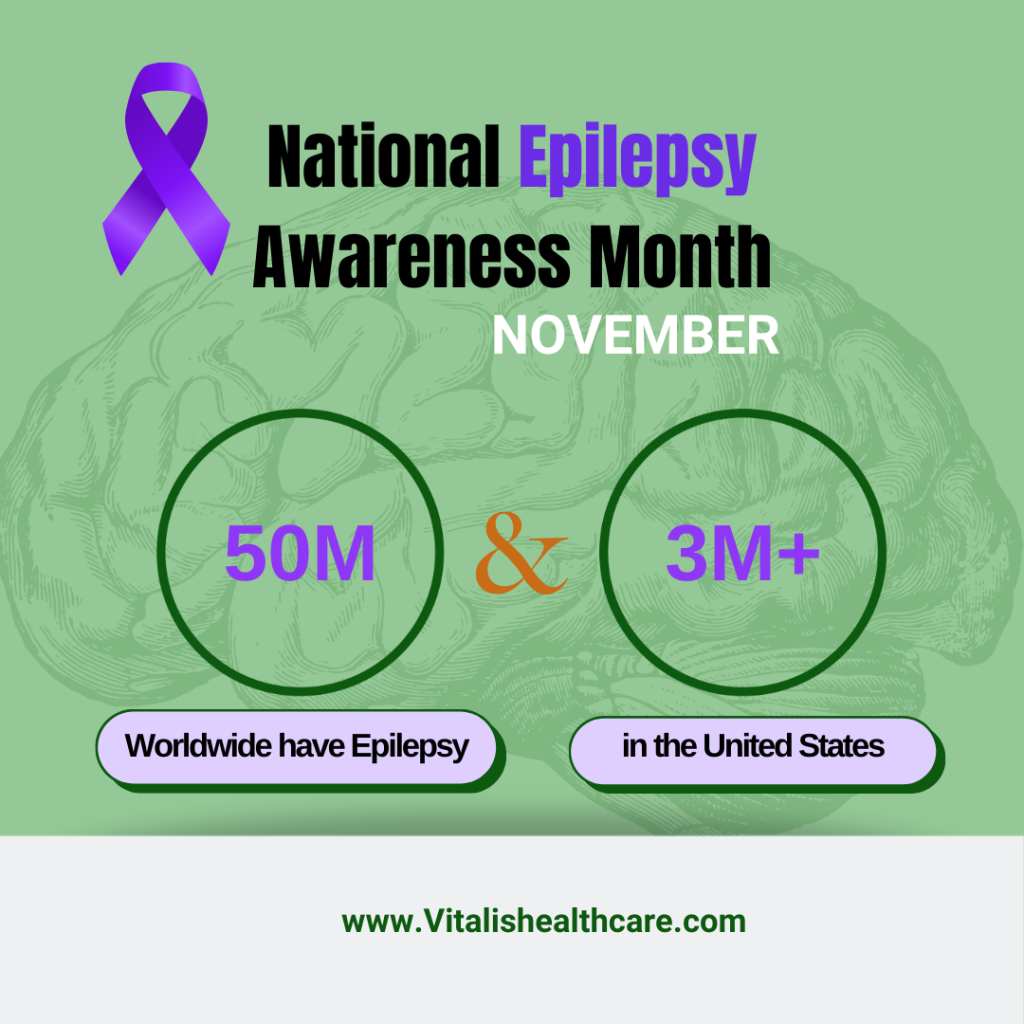As we approach National Epilepsy Day, it’s crucial to raise awareness about epilepsy, especially among seniors. While epilepsy is often associated with younger individuals, the reality is that many older adults live with this neurological disorder. In fact, the Centers for Disease Control and Prevention (CDC) estimates that nearly 1 in 26 people will develop epilepsy in their lifetime, and the prevalence increases with age. Managing epilepsy effectively is vital for maintaining the quality of life for seniors. Home healthcare services can play a pivotal role in supporting these individuals and their families.
Epilepsy is characterized by recurrent seizures, which can vary in type and severity. For seniors, epilepsy may result from various factors, including age-related changes in the brain, strokes, head injuries, or neurodegenerative diseases. Seizures can be disorienting and frightening, both for the individual experiencing them and for caregivers. Therefore, comprehensive management strategies are essential.
How Home Healthcare Can Assist in Epilepsy Management
- Personalized Care Plans: Home healthcare professionals can work with families and healthcare providers to develop individualized care plans tailored to the senior’s specific needs. This includes medication management, seizure triggers, and lifestyle adjustments to reduce seizure frequency.
- Medication Management: Many seniors with epilepsy take antiepileptic medications to control seizures. Home healthcare providers can help ensure medications are taken as prescribed, monitor for side effects, and coordinate with healthcare providers for any necessary adjustments.
- Education and Training: Caregivers often require education on how to recognize different types of seizures and respond appropriately. Home healthcare professionals can provide training on seizure first aid, emphasizing the importance of staying calm, protecting the individual from injury, and timing the seizure.
- Creating a Safe Environment: Safety is paramount for seniors with epilepsy. Home healthcare professionals can assess the living environment and recommend modifications to reduce the risk of injury during a seizure. This may include removing sharp objects, securing rugs, and installing grab bars in the bathroom.
- Encouraging Healthy Lifestyle Choices: Lifestyle factors can influence seizure control. Home healthcare providers can assist in promoting a healthy diet, regular physical activity, and adequate sleep, each of which can contribute to better seizure management
- Emotional and Social Support: Living with epilepsy can be emotionally challenging. Home healthcare professionals can provide companionship and emotional support, helping seniors cope with feelings of anxiety or isolation.
As we celebrate National Epilepsy Day, it’s essential to recognize the unique challenges faced by seniors living with epilepsy. With the right support and resources, it’s possible to manage this condition effectively and enhance quality of life. Home health care can provide invaluable assistance in creating personalized care plans, ensuring medication adherence, and fostering a supportive environment.
At Vitalis Healthcare, we understand the complexities of managing epilepsy in seniors. Our dedicated team of healthcare professionals is here to provide personalized care, and support your loved ones’ needs. Don’t hesitate to reach out to us today to learn how we can assist in managing epilepsy effectively and help your family lead a healthier, more fulfilling life.
Phone Number: 240.716.6874
Email: info@vitalishealthcare.com
Location: We provide our services in every county in the State of Maryland, United States of America.
8757 Georgia Avenue Suite 440 Silver Spring, MD 20910


